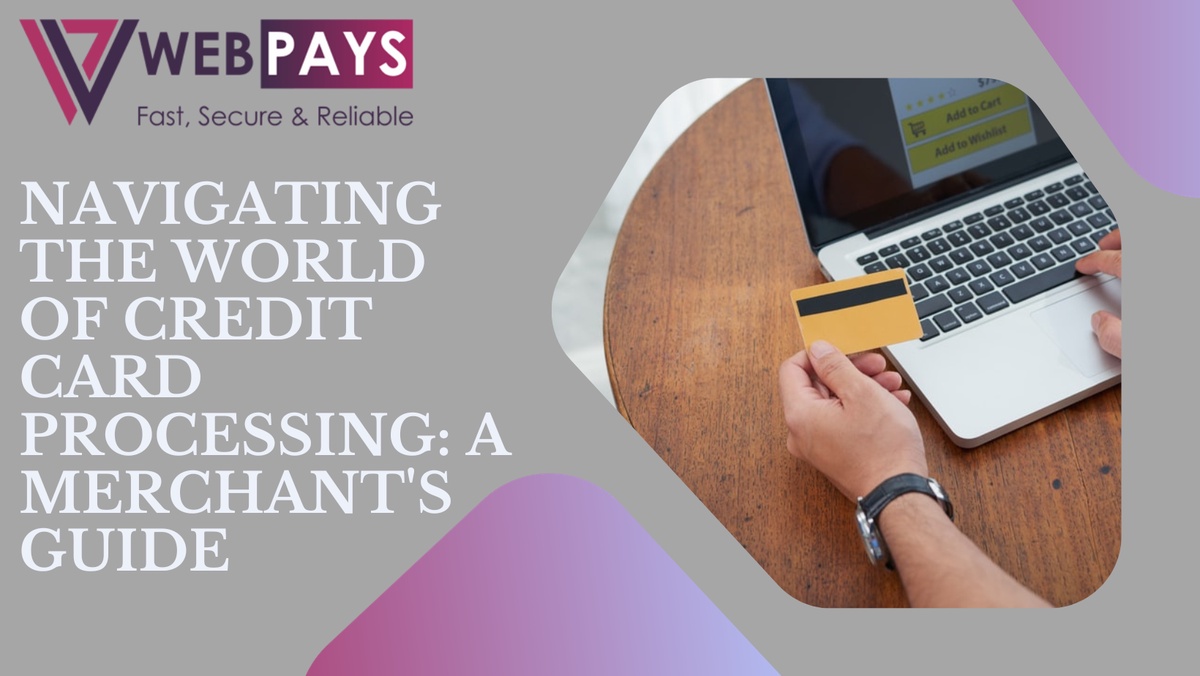Introduction
In today's digital economy, credit card processing has become essential to running a successful business. Whether you operate in regulated businesses or unregulated (high-risk) businesses, accepting credit card payments is crucial for attracting customers and boosting sales. However, diving into the world of credit card processing can be daunting, with numerous providers, fees, and technologies to consider. In this guide, we'll walk you through the key aspects of credit card processing, helping you make informed decisions that benefit your business.
Understanding Credit Card Processing
Credit card processing is the financial backbone of modern commerce. It involves a series of steps that allow businesses to accept and process credit card payments from their customers. Here's how it works:
- Payment Authorization: When a customer swipes, inserts, or enters their credit card details, the transaction data is sent to the merchant's payment processor.
- Authorization Request: The processor forwards the transaction details to the customer's issuing bank (the bank that issued the credit card).
- Authorization Approval or Decline: The issuing bank evaluates the transaction for available credit and potential fraud. If approved, the bank sends an authorization code to the processor. If declined, the transaction is denied.
- Payment Capture: If authorized, the processor captures the funds from the customer's account and settles the transaction.
- Funding: The processed funds are then deposited into the merchant's bank account, usually within a few business days.
We learned how credit card processing works. In the next para, let’s see how to choose an ideal credit card processing provider in Europe.
Choosing the Right Payment Processor
Selecting the right payment processor is a critical decision for any merchant. There are various factors to consider when making your choice:
- Fees: Different processors charge various fees, including transaction fees, monthly fees, and chargeback fees. Compare these costs to find a solution that provides a transparent fee structure and aligns with your budget.
- Security: Ensure the processor complies with Payment Card Industry Data Security Standard (PCI DSS) requirements to protect your customers' sensitive data. Confirm that it can offer high-risk credit card merchant accounts for your unique business model.
- Payment Methods: Consider the other types of payment methods you want to accept, such as mobile wallets (e.g., Apple Pay, Google Wallet), ACH, bank transfers, wire transfers, and cryptocurrency.
- Global Reach: A credit card processor should accept all international credit cards and help merchants find new markets.
- Integration: Check if the processor can seamlessly integrate with your existing payment system or e-commerce platform.
- Customer Support: Reliable customer support is crucial, especially when technical issues arise.
- Contract Terms: Review the contract terms carefully, paying attention to cancellation fees and contract length.
Payment Processing Technologies
The technology landscape for credit card processing is constantly evolving. Merchants can choose from various solutions, including:
- Point-of-Sale (POS) Systems: These are used in physical stores and include hardware like card readers and software for processing payments.
- Mobile Payment Solutions: Mobile devices equipped with card readers and apps allow merchants to accept payments anywhere, making them ideal for small businesses and events.
- E-commerce Payment Gateways: Online businesses rely on payment gateways to securely process payments over the internet. Popular options include WebPays, Square, and PayPal.
- NFC and Contactless Payments: Near Field Communication (NFC) technology enables contactless payments, where customers can simply tap their cards or mobile devices on a reader to complete transactions swiftly.
Today, almost every business has started its online venture, increasing the importance of card-not-present payments. These payments are made via an e-commerce payment gateway system, where customers fill in their card details online and complete the payment.
Managing Fees and Costs
Credit card processing fees can eat into your profits, so it's essential to manage them effectively. Here are some strategies to consider:
- Interchange Fees: These are fees charged by credit card networks like Visa and Mastercard. While you can't negotiate them directly, understanding how they work can help you optimize your payment processing.
- Tiered vs. Interchange-Plus Pricing: Consider using an interchange-plus pricing model that offers more transparency and can be cost-effective for many businesses.
- Chargeback Prevention: Implement robust fraud prevention measures to reduce the number of chargebacks, which can result in additional fees.
- Monthly Statements: Regularly review your processing statements to identify any unexpected charges or discrepancies.
- Negotiate: Don't hesitate to negotiate fees with your payment processor, especially if you're a high-volume merchant.
Compliance and Security
Ensuring the security and compliance of your credit card processing system is not only essential for protecting your customers' data but also for maintaining trust. Here are key compliance standards and security measures:
- PCI DSS Compliance: High risk merchant account providers must comply with the Payment Card Industry Data Security Standard (PCI DSS) to protect cardholder data. This involves regular security assessments and audits.
- Tokenization: Implement tokenization to replace sensitive card data with unique tokens, reducing the risk of data breaches.
- EMV Technology: Upgrade to EMV-compliant terminals and card readers to enhance security. EMV chips make it more difficult for fraudsters to clone cards.
- Data Encryption: Use encryption protocols to safeguard data in transit and at rest.
Conclusion
Navigating the world of credit card processing may seem overwhelming, but with careful consideration of your business's unique needs and the right partner, it becomes manageable and profitable. We recommend WebPays as a reliable payment processing solution. With competitive fees, robust security measures, and excellent customer support, WebPays can help your business thrive in the digital age. Don't let credit card processing be a hurdle; make it a seamless part of your operations and watch your business grow. Apply Now.


No comments yet